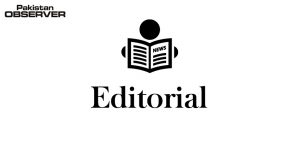A series of developments proved it beyond any doubt that the former ruling party, Pakistan Tehreek-i-Insaf (PTI), was on a weak wicket as far as the cipher controversy is concerned and the latest remarks of President Arif Alvi are being seen as yet another jolt to the conspiracy theory.
In an interview to a news channel on Monday, he called for an investigation into the matter but clearly stated that he was not convinced of the PTI’s narrative of the US conspiracy to oust the Imran Khan Government.
The President also repeated his idea for a Grand National Dialogue and expressed his views on general elections as well as appointment of the new Army Chief.
The issue of so-called letter, which turned out to be a routine cipher sent by Pakistan’s envoy in Washington, assumed central place in Pakistani politics immediately after the then Prime Minister Imran Khan waived it at a public meeting on March 27, telling people that a foreign inspired conspiracy has been hatched against his government.
The letter was used as a plea by then Deputy Speaker National Assembly Qasim Suri to dismiss the resolution on vote of no-confidence against the Prime Minister.
Even after the success of the voting process, culminating into dislodging the government, the party continued to hammer the idea of foreign aided conspiracy, terming the new regime as the ‘imported government’.
However, a series of events including recent audio leaks confirmed that the conspiracy narrative was deliberately woven around the cipher to suit PTI’s political objectives.
The most important aspect of the leaks is that these have not been denied by the PTI leadership and now it is threatening to go to the court on the issue of tapping and not on the authenticity of the contents.
The comments of the President matter much as, being head of the state, he is privy to those developments and facts that are not in the knowledge of other people.
The President’s reiteration of the proposal about consultation of the opposition on the appointment of the COAS is unlikely to yield any positive response as representatives of the coalition government have already termed it as supra-constitutional.
There is a laid down procedure for this prestigious appointment which envisages no role for the opposition.
The President’s reference to ‘consultation’ with the opposition on extension of the tenure of the incumbent COAS is not relevant as it involved amendments in the law and the opposition was taken into loop only when the legislation was introduced in Parliament.
As for dialogue, it is, no doubt, the need of the hour but who will take the practical lead for the purpose?










